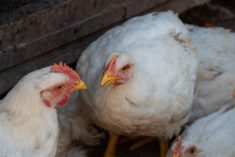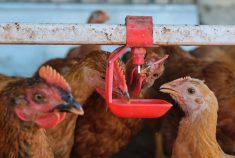Paris | Reuters — The bird flu virus that has been spreading among wild birds, poultry and mammals could lead to a pandemic worse than COVID-19 if it mutates to transmit between humans, the head of France’s Institut Pasteur respiratory infections centre said.
The highly pathogenic avian influenza, commonly called bird flu, has led to the culling of hundreds of millions of birds in the past few years, disrupting food supplies and driving up prices, though human infections remain rare.
Read Also

Bayer’s proposed Roundup settlement faces first signs of pushback in court
Law firms representing nearly 20,000 people who sued Bayer over alleged injuries from its Roundup weedkiller urged a Missouri judge to delay reviewing the German company’s proposed US$7.25 billion nationwide settlement, arguing that rushing would violate the rights of cancer patients and their families.
“What we fear is the virus adapting to mammals, and particularly to humans, becoming capable of human-to-human transmission, and that virus would be a pandemic virus,” Marie-Anne Rameix-Welti, medical director at the Institut Pasteur’s respiratory infections centre, told Reuters.
The Institut Pasteur was among the first European labs to develop and share COVID-19 detection tests, making protocols available to the World Health Organization and labs worldwide.
No antibodies against H5 bird flu
People have antibodies against common H1 and H3 seasonal flu, but none against the H5 bird flu affecting birds and mammals, like they had none against COVID-19, she said.
And unlike COVID-19, which mainly affects vulnerable people, flu viruses can also kill healthy individuals, including children, Rameix-Welti said.
“A bird flu pandemic would probably be quite severe, potentially even more severe than the pandemic we experienced,” she said in her Paris laboratory.
There have been many cases of people infected by H5 bird flu viruses in the past, including the H5N1 currently circulating among poultry and dairy cows in the U.S., but these were often in close contact with infected animals. A first ever human case of H5N5 appeared in the U.S. state of Washington this month. The man, who had underlying conditions, died last week.
In its latest report on bird flu, the WHO said there had been nearly 1,000 outbreaks in humans between 2003 and 2025 – mainly in Egypt, Indonesia and Vietnam, of which 48 per cent had died.
Human pandemic risk still low
However, the risk of a human pandemic developing remains low, Gregorio Torres, head of the Science Department at the World Organization for Animal Health, told Reuters.
“We need to be prepared to respond early enough. But for the time being, you can happily walk in the forest, eat chicken and eggs and enjoy your life. The pandemic risk is a possibility. But in terms of probability, it’s still very low,” he said.
Rameix-Welti also said that if bird flu was to mutate to be able to be transmitted between humans, the world was better prepared than it was before the COVID-19 pandemic.
“The positive point with flu, compared to COVID, is we have specific preventative measures in place. We have vaccine candidates ready and know how to manufacture a vaccine quickly,” she said.
“We also have stocks of specific antivirals, that, in principle, would be effective against this avian influenza virus,” she added.
— Reporting by Sybille de La Hamaide and Lucien Libert















